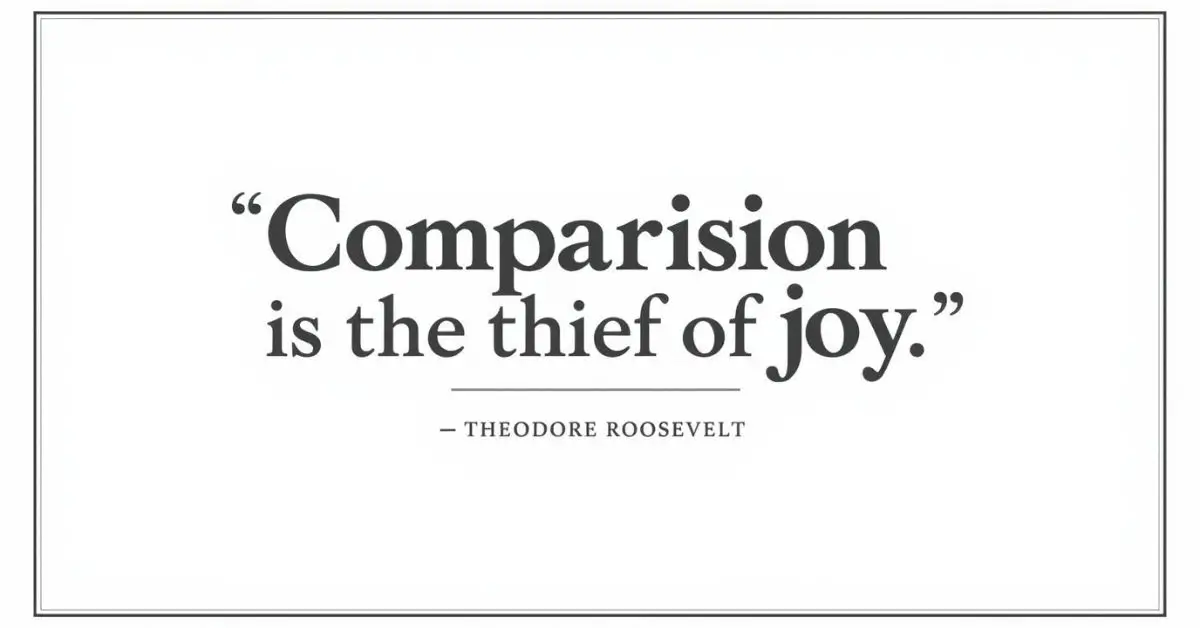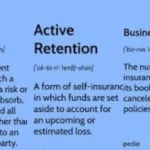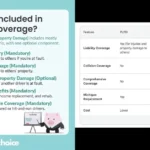Ever felt like you’re doing fine—until you see someone else doing “better”? Whether it’s a promotion, a perfect Instagram vacation, or a child’s achievement shared by a fellow parent, that subtle sting of comparison is universal. And yet, it’s silently chipping away at our joy. If you’re a personal development seeker, a mental health advocate, a parent, or someone scrolling through curated social media feeds—you’ve likely felt it. As Theodore Roosevelt famously said, “Comparison is the thief of joy.” And in today’s hyper-connected world, that thief is more active than ever.
This article unpacks why comparison is so damaging, how it shows up in modern life, and most importantly, how to reclaim your joy through actionable strategies.
The Psychology Behind Comparison

Why Comparison Is the Thief of Joy, Explained
Social comparison theory, introduced by psychologist Leon Festinger in 1954, explains that we evaluate our own worth by comparing ourselves to others. While some comparison can motivate self-improvement, excessive comparison leads to:
- Decreased self-esteem
- Anxiety and depression
- Imposter syndrome
- Social withdrawal
Dr. Kristin Neff, an expert in self-compassion at the University of Texas, warns that chronic comparison often results in “a relentless sense of inadequacy.”
Joy vs Comparison: Why We Always Lose
Comparison and Happiness
Studies consistently show that happiness isn’t based on what we have but how we perceive what we have. When we measure our success against someone else’s highlight reel, we’re bound to feel inferior. The result?
- Dissatisfaction with your life journey
- Lack of gratitude for personal progress
- Increased resentment toward peers or loved ones
The Dangers of Comparison
Unchecked comparison isn’t just a mental drain—it’s an emotional parasite. Some documented dangers include:
- Chronic insecurity
- Burnout from unrealistic expectations
- Emotional detachment from real joys
The Digital Dilemma: Self-Worth and Social Media
Social platforms have amplified the toxic comparison culture. According to a 2023 study from the American Psychological Association:
“Social media users who engage in frequent upward comparison show significantly lower life satisfaction and higher levels of anxiety.”
How Social Media Fuels Toxic Comparison Habits
- Curated content = Unrealistic standards
- Engagement metrics = Quantified self-worth
- Filters and Facades = Illusions of perfection
Quick Tips to Disarm Social Media Comparison:
- Limit scrolling to 30 minutes/day
- Unfollow accounts that spark envy
- Follow creators who promote authenticity and vulnerability
Comparison vs Self-Improvement: What’s the Difference?
Growth is healthy; comparison is not. Here’s how to tell them apart:
| Aspect | Self-Improvement | Toxic Comparison |
| Motivation | Personal growth | Outshining others |
| Emotional Impact | Encouraging | Draining |
| Focus | Internal goals | External validation |
| Outcome | Fulfillment | Insecurity |
Personal Growth Without Comparison
Mindfulness and Comparison
Mindfulness teaches us to stay rooted in the present and focus on our unique journey. Practicing mindfulness reduces the urge to compare by reinforcing self-awareness and gratitude.
Mindfulness Habits to Practice:
- Daily journaling
- Gratitude lists
- Meditation or breathwork
- Affirmations like: “I am enough, just as I am.”
Envy vs Inspiration: Shift Your Mindset
What if instead of resenting someone else’s success, you used it to fuel your own growth? That’s the mindset pivot from envy to inspiration.
Tips to Overcome the Thief of Joy Mindset:
- Reframe envy as admiration
- Celebrate others openly
- Ask questions like “What can I learn from them?”
Remember: Their success doesn’t diminish your own worth.
Quotes About Comparison Worth Reflecting On
- “Comparison is the thief of joy.” —Theodore Roosevelt
- “Don’t compare your beginning to someone else’s middle.” —Jon Acuff
- “A flower does not think of competing with the flower next to it. It just blooms.” —Zen Shin
Expert Sources That Validate These Insights
- Dr. Kristin Neff – University of Texas, Expert in Self-Compassion: https://self-compassion.org
- American Psychological Association – Research on Social Media & Comparison: https://www.apa.org
- Dr. Laurie Santos – Yale University, Science of Well-Being Course: https://www.coursera.org/learn/the-science-of-well-being
Conclusion
In a world where comparison lurks behind every scroll, post, or passing conversation, protecting your joy is not just self-care its survival. We’ve explored how toxic comparison erodes mental health, hijacks self-worth, and distorts happiness. From understanding the psychology behind it to drawing the line between self-growth and self-doubt, the message is clear: you don’t need to measure up to anyone else’s highlight reel to live a meaningful life.
Whether you’re a mindful parent, a growth-minded professional, a Gen Z navigating social media pressure, or a soul seeking spiritual clarity your journey is valid, unique, and worth celebrating. Reject the thief. Embrace the joy. And remember: your timeline is not late it’s yours
FAQ’s
Why is the comparison the thief of joy explained simply?
Because it shifts your focus from what you have to what you lack, creating emotional dissatisfaction and stealing your ability to enjoy your present.
How do I stop comparing myself to others?
Limit social media, practice mindfulness, journal your wins, and surround yourself with supportive people.
What’s the psychological impact of constant comparison?
It leads to decreased self-worth, higher anxiety, and often results in burnout or depressive episodes.
Comparison vs self-improvement: what’s the key difference?
Self-improvement is inward-focused and growth-driven. Comparison is externally driven and validation-focused.
What does the Theodore Roosevelt quote “comparison is the thief of joy” mean?
It means that constantly measuring your worth against others erodes your happiness and fulfillment.
How does social media fuel toxic comparison habits?
Through unrealistic portrayals of success, beauty, and happiness, making users feel perpetually “less than.”
Is comparison bad for your mental health?
Yes, especially chronic upward comparison, which contributes to anxiety, depression, and feelings of inadequacy.
Can I grow without comparing myself to others?
Absolutely. Set personal goals, reflect often, and celebrate your unique timeline.
What are some tips to overcome the thief of joy mindset?
Reframe envy as inspiration, practice gratitude, and regularly remind yourself that success is not a zero-sum game.











